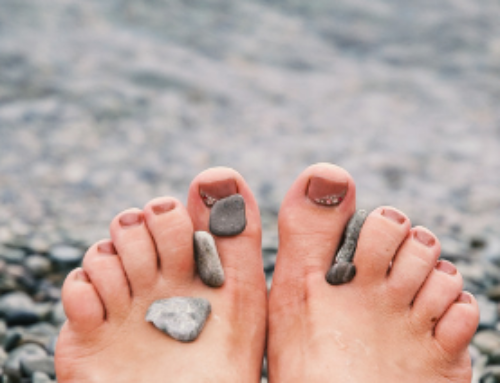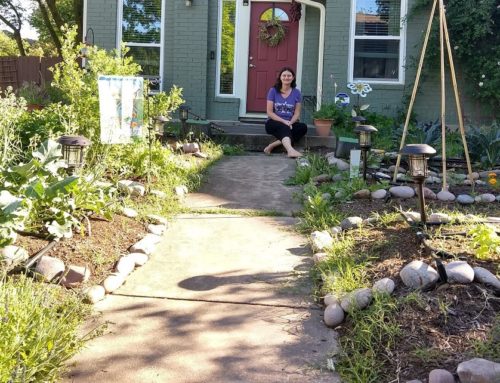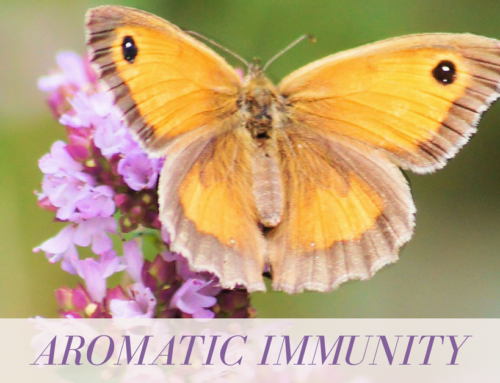What essential oil is the best for migraines?
What essential oil should I use for kidney stones?
What essential oil is best to get off my blood pressure medication?
How often should I take essential oil X for symptom Y?
What essential oil is good for __________ health problem?
These are real questions I’ve seen in the last couple of weeks as well as ones for managing cold symptoms, pain conditions, and even pet care related questions.
We North Americans have fallen into the misconception that if there is a pill for every malady there must be a bottle of essential oil to replace it. Aromatherapy parties with titles such as “Make over your medicine cabinet with essential oils!” are popping up in aromatherapy salespersons living rooms. So it may be a big surprise to you that aromatherapy doesn’t work like allopathic medicine and thus aromatherapists don’t work like natural pharmacists: dispensing essential oils for unpleasant symptoms.
The Holistic Approach in Aromatherapy
Aromatherapy is not based on the Allopathic medicine model of treating for specific symptoms and conditions. Now, you’re probably already thinking “Gee, Amy! I’ve used X essential oil to help with Y symptom and it was brilliant!” but hang out with me for just a bit. Aromatherapy is interested in treating the person, the individual, you.
A medical diagnosis is just one piece of a puzzle to a complementary medicine practitioner. And the resulting complementary medicine diagnosis does not fit inside the box of allopathic medicine. It takes into account the mind-body connection and the root of the pattern of dis-ease. Some may see a list of symptoms but an aromatherapist may see a pattern of disharmony that needs to be addressed.
An aromatherapy treatment plan seeks to support the body’s own healing and balancing processes. Your aromatherapist may also encourage you to seek support from an allied health professional to further enhance your wellness goals – this may include a visit to the nutritionist, a return to the doctor’s office, a series of acupuncture or bodywork treatments.
Now, this doesn’t mean your symptoms are discounted or irrelevant, just that treating symptoms alone is not the focus or intent with aromatherapy. And your aromatherapy treatment plan may come in stages – changing the perception of pain you’re experiencing from the kidney stones, then supporting the energy of the kidneys through an Eastern medicine approach. Or getting fast relief from the muscle spasms in your shoulders with an antispasmodic essential oil blend while the body may take several months to balance the root cause of your migraines.
Does self-treating work?
If you quickly thumb through an aromatherapy book for your health complaint and see a short list of essential oils that may help your condition you’ll be keen to try them! And some of the time you get a response — it could be the essential oil worked, it could be placebo or psychosomatic, but it worked! What happens if it doesn’t? Do you go to the next essential oil on the list and then the next?
In keeping with the holistic approach I described above you may see how trying to treat a chronic health complaint one essential oil at a time could lead to frustration. Some have abandoned the idea of using aromatherapy in their wellness plan altogether because it didn’t cure a specific ailment like they thought it would. Others have come to the painful realization that they used too much, thinking more essential oil would address the symptom, or used an essential oil not appropriate for them and have experienced unpleasant reactions to the self-treatment.
I find self-treating at home for a handful of acute health complaints can be a wonderful thing for the educated consumer. Knowing who in the family is a good candidate for aromatherapy support and being well-informed on the essential oils on hand is the very reason I hold community education classes and lectures year-round. I want families to know which essential oils can soothe the body of a family member with a cold, change the energy in a room when someone is feeling low, bring comfort to a teenaged daughter with mood swings, or help a partner unwind after a stressful day.
When to reach out for support from a professional aromatherapist?
Aromatherapists are happy to provide an educational consult or a traditional aromatherapy consult. This is our job, we love doing this! Here are some examples of times when you might want to reach out and ask for support:
- Chronic patterns of tension and dis-ease
- Children, frail or elderly persons
- Pregnancy and postpartum
- Palliative and oncology patients
- To gain a better understanding of essential oils you have on hand
- To discuss acute patterns within your family
I’ve been told by students in my community classes that they’re only interested in “cures” with aromatherapy and it makes me sad that they’ve put the therapy into a box. There will always be someone who wants to promise you an aromatherapy/herbal/all-natural/green cure for __________ health problem, and likely he or she will try to make a healthy profit off your health concern. But when you move past those who only want to treat your label, you’ll find those of us here who want to treat you as a whole person with your own intuition, your own path to wellness, and we’re here to be part of your wellness team. When you’re ready, look us up!









Leave a Reply